When I call the Amalfi Coast’s Sentiero Degli Dei (Footpath of the Gods) a ‘legendary’ hiking trail, I don’t mean it in that cliched and superlative kind of way that writers often use to grab your attention. I mean that this footpath has sparked actual legends and occupies a central spot within Greek mythology. The Footpath of the Gods holds its own as a world-famous hike; any journey along it is guaranteed to reward the pilgrim who walks it with heavenly views from a coastal slice of Italian paradise.
What makes the Footpath of the Gods so special?
Homer’s nearly 3000-year-old epic poem, The Odyssey, is centred around the character of Ulysses, King of the fictional island of Ithaca. Legend goes that while sailing along the Amalfi Coast, he began to succumb to the irresistible song and beauty of the sirens. The Greek Gods rushed down from their mountain abode to save him. In their haste, they stomped a trail into the cliffs and mountains behind them. Thus, we have the Footpath of the Gods.
But many mortals have since followed God’s footsteps. Until the mid-1800s, this footpath was the only connection between the villages of the Amalfi Coast, and all communication and trade flowed along it. Today, a bus or car journey is possible but this is an exhilarating experience in itself; squeeze through tunnels and teeter along clifftops, and you’ll soon understand why this region remained inaccessible for so long, and why some locals still prefer to travel by mule or donkey.
For millennia, it was this isolation that many people sought. Criminals and smugglers found refuge in the shadows. Faithful Christians established secluded monasteries where they could commune with God. Their legacies can still be found in the honeycombed cliffs of Grotta del Biscotto, in the austere Convento di San Domenica, and in the caves and abandoned stone huts where they lived.
Walking the Footpath of the Gods
Myth and legend aside, the Footpath of the Gods is a beautiful hike that spans 7.5 kilometres (4.7 miles) from Bomerano to Positano. Walked in this westerly direction, the route is generally downhill, finishes on the beach, and offers views that extend along the Amalfi Coast to the island of Capri. Allow four to five hours to walk the entire Footpath of the Gods.
Averaging 500 metres of altitude, the footpath seems suspended in mid-air between towering limestone mountains and sapphire Mediterranean waters. Peering down between the clouds, you’ll enjoy a bird’s eye view (you could almost say God-like) to the villages below. As the walk undulates between different elevations, you’ll witness great variety. You’ll stroll beside terraced fields tangled with vines and exploding with the zesty scent of lemon groves. You’ll pass wildflower meadows, the air electric with butterflies and with the fragrances of fennel, peppermint, and thyme.
The footpath is open year-round thanks to the generous Mediterranean climate, however, the perfect time to visit is Spring (April– May) and Autumn (September – October). In Summer, be sure to get an early start and take two litres of water as the footpath has little shade. There are several taps throughout the route where you can fill water bottles.
Winter brings cooler temperatures and rain; be sure to check a weather forecast before setting off and take appropriate warm clothes and waterproofs. Many people finish in Nocelle to avoid the 1,500 sweaty and leg-busting steps which descend to Positano. If you have the energy, it's well worth stopping for a lemon slushie in Nocelle before enjoying the woodland descent. Alternatively, an hourly bus can whisk you down during peak seasons.
Don’t Miss!
Convento di San Domenica
The Convent of Saint Domenica enjoys an inspiring setting, gazing out to the hypnotic Mediterranean from its isolated mountain-top vantage point. It must have been a stunning spot to arrive for the Dominican monks who moved here from Naples in the 16th century. Be sure to step inside to admire the colourful frescoes, and perhaps sample the lemon juice or fresh figs which are often on offer.
Positano
Visible throughout, the attractive town of Positano marks the finish of the Footpath of the Gods and entices you like a siren towards it. The delicate palette of pastel-coloured houses cascade up a hill so that the town appears like a Jenga game that got out of hand. Sit and people-watch in the Piazza of Santa Maria Assunta, or enjoy the sunshine on the sandy beach.






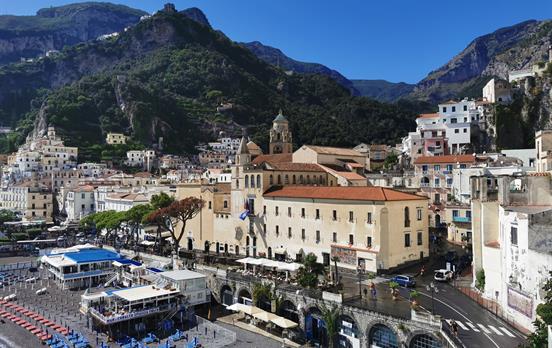
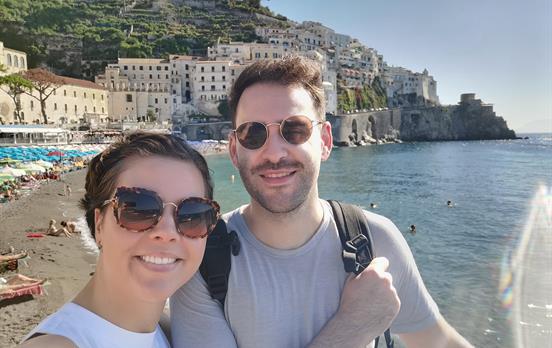

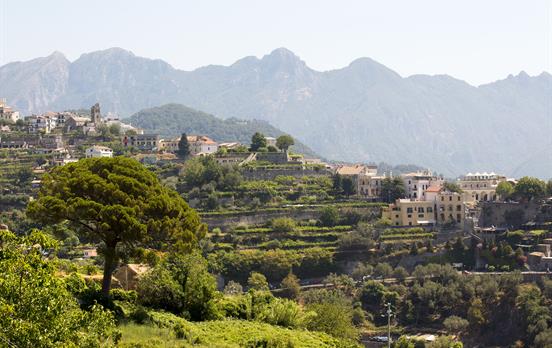
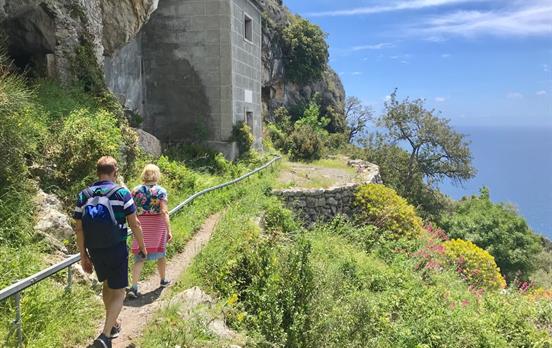
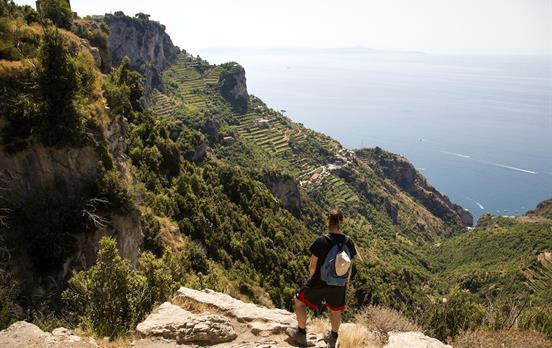
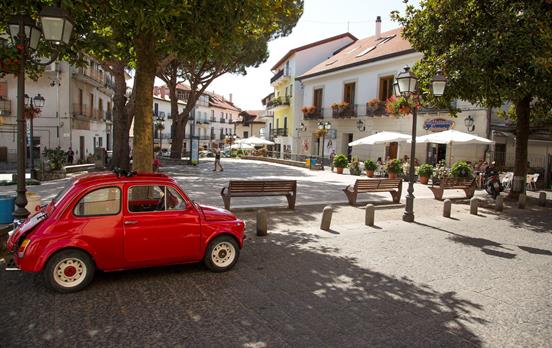
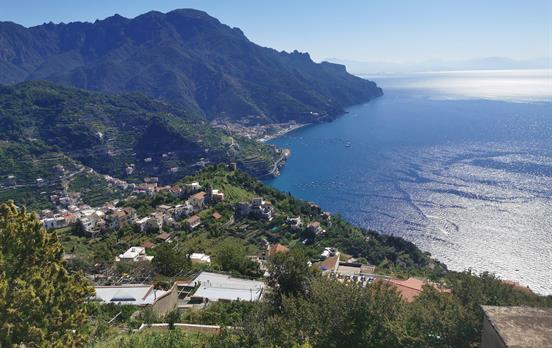
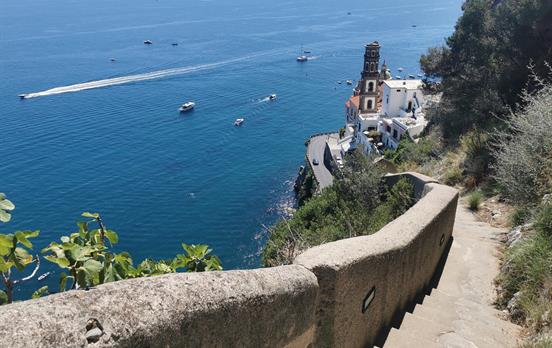


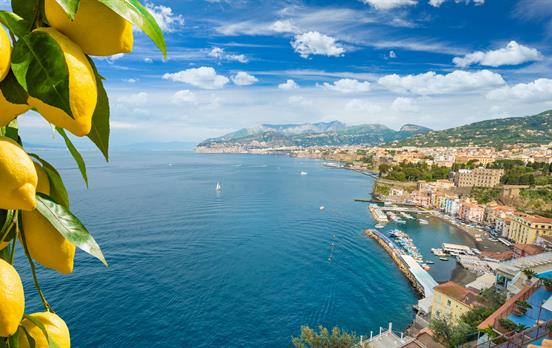

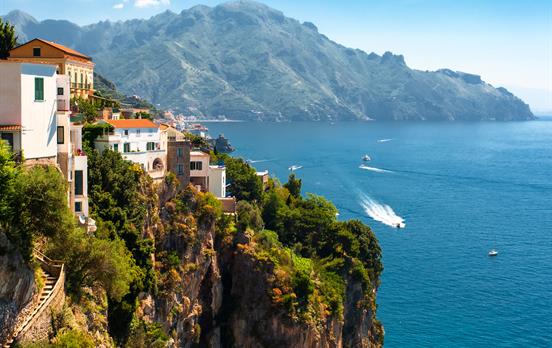
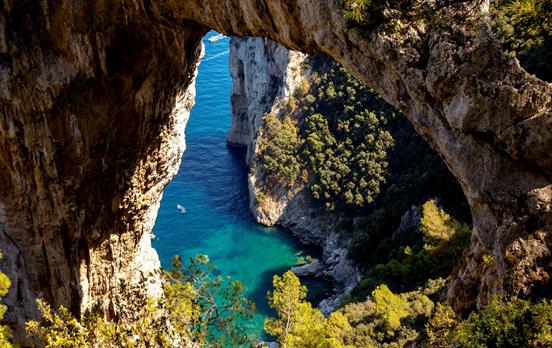

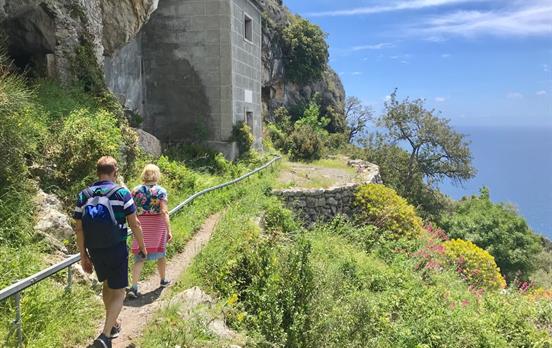
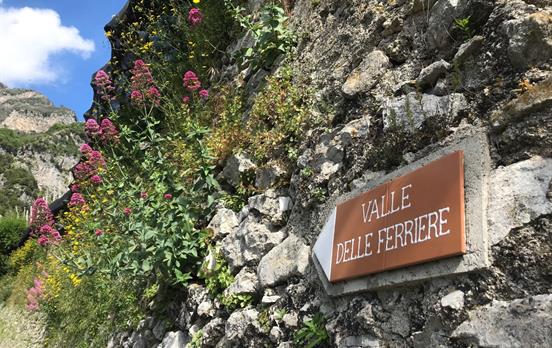
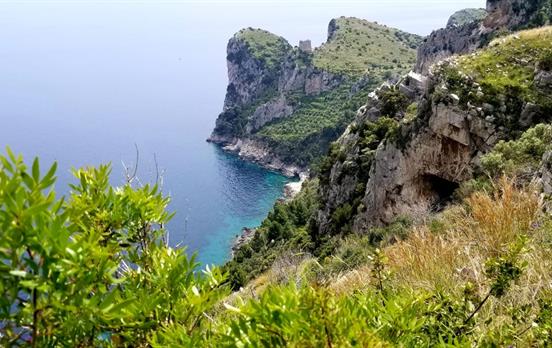
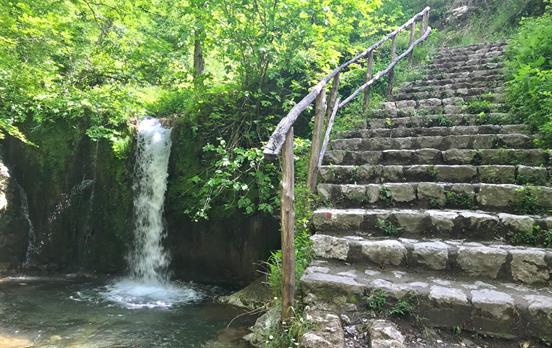












 Australia
Australia New Zealand
New Zealand South Africa
South Africa European Union
European Union